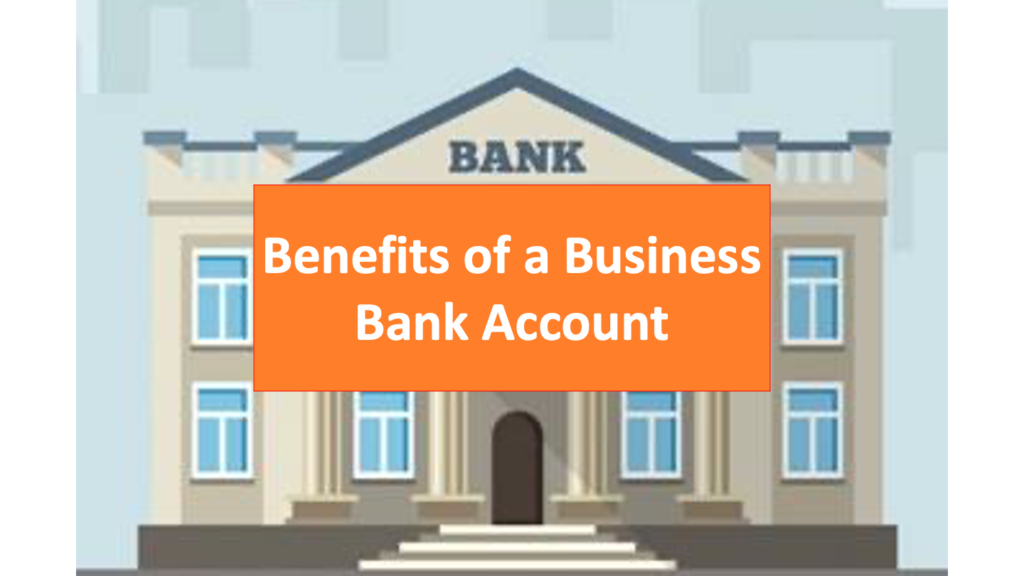Benefits of Having a Business Bank Account
Table of Contents
The complete guide to the benefits of having a business bank account. Still pondering the benefits of opening a business bank account? Read to find out.

Building and growing a business is a lot of work. Self-employed individuals, gig workers, freelancers, delivery drivers, and independent contractors know this very well. Often self-employed individuals ask, should I open a business bank account? They wonder about the benefits of having a business bank account. Many wonder about the benefits of opening a business bank account.
A common dilemma is what’s the purpose of a business bank account and the benefits of opening a business bank account. Many self-employed and freelancers feel that a business bank account will just add more headache to their already really busy lives.
They rationalize that they already have a personal bank account that works just fine for their business as well, so why go through the unnecessary hassle?
In this article, we provide you with the most complete list, and we mean it, the most complete list you can find of the benefits of a business bank account. After reading this article you will understand the purpose and benefits of having a business bank account.
Most importantly, you will be empowered to decide if you should open one, which we highly think you should. The benefits far outweigh any perceived drawback you might have.
Keep reading to find out.
Related:
How to Choose the Best Bank Account for your Small Business
How to Open a Business Checking Account for Small Business
Improves Your Business Banking Relationship
Building relationships and networking are some of the most important things to building and growing a business. With that said, one of the most important relationships for your business to build is a business banking relationship.
When you open a business bank account you have the opportunity to develop a good relationship with your bank. To show your business bank that your business is profitable, growing, and has good banking habits. A good banking relationship pays off when the time comes that you need a small business loan or a business line of credit. Or, even no-fee bank services.
Helps Build Your Business Credit Rating
What is business credit?
Businesses have credit ratings just like individuals. In addition, to build a successful business you need a lot of support and resources. Some of the resources needed to build a business often include financial support. For small businesses and self-employed this often means opening a business loan.
One of the benefits of having a business bank account is that it helps your business establish credit. Your business credit is established by demonstrating good business financial habits.
What is business credit, and its benefits?
A good business credit rating means your business will receive good interest rates on business loans and even larger loans. In addition, a good business credit rating also means you’ll receive the most competitive interest rates, low-cost transactions, and many other lower fees for your business bank account.
Safeguards Your Business and Personal Funds
A business bank account allows you to separate your business and personal finances.
What are the benefits of separating personal and business finances?
When your personal and business finances are separate by having a separate personal bank account from a business bank account.
This means that your personal assets are not at risk if your business has a loan or any debts that it cannot pay.
Simplifies Your Tax Returns
A business bank account keeps your personal funds separate from your business funds. This means your business transactions aren’t mixed with your personal transactions. Therefore, it’s easier and simpler to organize everything when it comes time to file your business taxes.
Also, your personal finances won’t be at risk in the event that the IRS audits your business.
Accurate Taxes
Again, a business bank account keeps your business transactions separate from your personal account. This ensures you file your taxes accurately. Accurately filing your taxes is harder when you mix personal transactions with business transactions. Also, you can write off bank fees from your business taxes (if you have any).
What happens if I don’t file my business taxes accurately?
You could face IRS penalties if you don’t file your taxes accurately.
Accurate Deductions
Businesses can deduct expenses from their taxes. These are often also called business write-offs, or tax write-offs. There are many self-employed tax deductions for small businesses and independent contractors.
In addition, to write-off business expenses the IRS requires you to prove that the expense was for business. That it wasn’t a personal expense.
Having a business bank account makes it easier to prove that business deductions were for business purposes, or rather work-related. Also, a business bank account makes sure your business expense deductions are accurate and that you don’t miss a write-off. When your personal and business expenses are mixed in the same account it’s easy to miss a business deduction. This means you take home less income, and no one wants that.
What is a tax write off for business?
Many self-employed ask, what is a business write-off?
Businesses can write off expenses like individuals. There are a number of expenses that a self-employed individual or independent contractor can write off. Check out this article for a list of business expense write-offs: A Complete Guide of Business Expense Write-Offs.
A great way to track business expenses is to use an expense tracker app like Falcon Expenses. An expense tracker app is great to track expenses that are harder to track with a business bank account, such as cash purchases and mileage expenses.
Falcon Expenses tracks your mileage with an auto GPS tracker. Also, you can snap pictures of business expense receipts so you never lose a receipt again. Store your business expenses in Falcon and export them in easy-to-read expense reports for your records or when you do your taxes.
Simplifies Your Business Operations
Running a business is already challenging enough. Therefore, anything you do to simplify the operations of your business is a huge perk.
A business bank account makes bookkeeping easier, clear, and accurate.
When all your business transactions and bank activity are all in one place, and not mixed with your personal transactions, bookkeeping is easier. In addition, your business bookkeeping will be more clear and accurate, and less prone to mistakes.
Shows Professionalism
A dedicated business bank account under your company’s name shows your clients that your business is professional. It also demonstrates that your business is organized and established. Your clients will see this when they pay you directly to your business bank account.
Online Banking
This is another benefit that likely most personal bank accounts have. However, we wanted to highlight that these perks are also included with business bank accounts.
Online banking helps you know your account balance from anywhere. In addition, features like low-balance alerts and transaction notices help you avoid overdrafts or catch potentially fraudulent activity.
Mobile Check Deposits
Many self-employed and independent contractors receive paper checks from customers. With that said, a benefit of many business bank accounts is the ability to make mobile check deposits.
For self-employed and independent contractors this saves you trips to the bank or the wait for a mailed check to show up in your balance.
You Can Accept Credit Cards
Accepting only cash payments limits the number of customers you can have. When you are able to accept credit cards as a payment option you expand your customer base.
Many business bank accounts allow you to set up credit card acceptance systems through your checking account.
Interest Checking
Interest checking is a common benefit of personal bank accounts. However, we wanted to make you aware that with some business bank accounts you also earn a small amount of interest on the money that you keep deposited in them. We’ve added this little note so you know that when you open a business bank account you aren’t missing out on many of the same benefits you already get with your personal checking account.
Some business checking accounts can also earn interest. Compare rates and requirements to see if you might earn a little extra cash with an interest-bearing account.
Multiple Cards
Along with allowing multiple signers, business bank accounts allow you to have multiple cards. While most of those self-employed and independent contractors are working alone, one day your business might expand and you might take on a business partner. Or perhaps, your small business already has more than one founder, owner, or business partner.
The benefit of multiple cards also comes in handy if you employees and you plan on issuing cards to employees for purchases.
Money Management Tools
Money management tools include an end-of-year summary of charges and day-to-day tracking of purchases and expenses. When you use a business bank account, your business transactions and personal transactions are separated. Therefore, these money management tools come with huge value as they give you a true snapshot of just your business financial activity; all summaries and reports are not mixed with any of your personal finances. The benefits of this are immeasurable and massively time-saving.
These perks come in handy when operating a business, particularly if you’re self-employed, or a sole proprietor.
Remember, self-employed individuals and sole proprietors are usually running their businesses alone. This means any time-saving operations enhancements are really valuable. As typically, an independent contractor is a one-person business.
Organize Business Records
When your business transactions are separated from your personal transactions your business records are more organized. All of your business transactions are tracked on a separate bank statement with a business bank account. This makes your life as a small business owner or independent contractor easier.
Separating business and personal transactions also helps you monitor your business’s profitability. Mixing business and personal transactions would be disorganized and would make it hard to determine your profit margin.
Multiple Business Account Signers
Most business accounts allow more than one person as a signer. Therefore, if you have a business partner this could come in handy.
In addition, a business account allows more than one person to be authorized to write checks, make deposits, and sign for debit card transactions, which can relieve some of the business owner’s workload.
Again, most self-employed and independent contractors are sole proprietors, meaning they are businesses owned and operated by one person. However, this business bank account benefit comes in handy when you want to add a partner or co-owner. Or, perhaps, you just want to hire someone
Conclusion
After reading this article you are now aware of the many benefits of opening a business bank account. And there are many, we made sure not to leave any out.
A business bank account is advantageous for any business owner, whether it’s a small business, a gig worker, someone self-employed, a sole proprietor, delivery driver, independent contractor, etc.
So go ahead and open won’t. Don’t wait another minute.
Was this article helpful?

I used to travel a lot for work. Doing my expenses frustrated me. I would delay submitting them and when I did, I would spend hours taping receipts to paper to scan for my boss. I knew there was a better solution, and I had a background in productivity software, so I created Falcon Expenses. I enjoy creating software that makes people’s lives easier.
In addition, I’m an avid skier and I enjoy hiking, sailing, and cooking.





